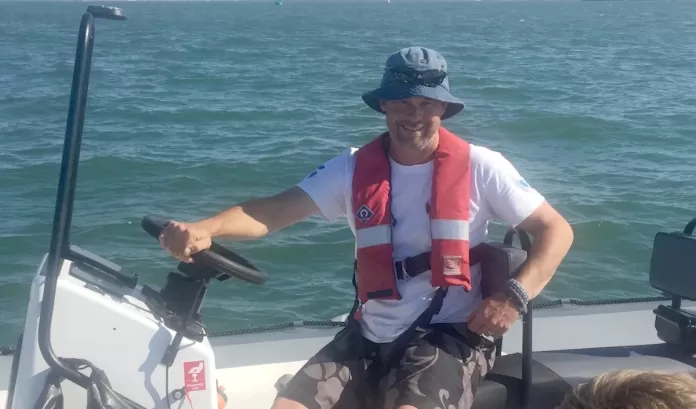The electric boat market will continue to gradually evolve over the next five to ten years.
That’s the view of Jamie Marley, marine electric and hybrid propulsion consultant, who says the market has been moving very fast but there are still obstacles that need to be overcome.
“On the commercial side, vessel operators run the numbers and it makes a lot of sense to switch to electric and there are a lot of advantages if electric can achieve what they want to do.
“But on the recreational side, why would anyone spend four times the amount on the system to get electric, it’s a more challenging sell or idea or a dream to sell to someone.”
Jamie added: ‘In Europe there are some regulations that stipulate you can’t use diesel or petrol engines, particularly on lakes.
“In the UK though, there are different challenges such as tides and waves which make the journey from A to B longer. Electrification and the range we get from batteries is not seen to be enough, so it opens up a bigger topic which is people’s mindset.
“We are so used to having a fuel tank in the boat, we have to do it smarter in an electric boat.”
Having said that, Jamie is quick to acknowledge the new designs which are being developed with electric boats embracing modern hull forms to achieve a greater range and the dramatic increase in foiling boats which are more energy efficient.

But he points out that electric propulsion is only a small part of what is going to be the solution of the future.
“There’s going to be a mix of fuels but, particularly in the UK, more infrastructure is required.
“We have electric infrastructure in our marinas in the UK but it’s not fast charging.
“We don’t have HVO infrastructure. Boat owners need to hedge their bets and hope that all the fuels will be produced, and at the same time, hope the infrastructure is available.
“We can’t wait for the infrastructure to come, it’s too much of a gamble. What happens if it’s not made available?”
And looking into the future, Jamie believes the price of electric boats will become lower together with the ability to manufacture the craft with a lower carbon debt.
“What we will continue to see is more manufacturers producing systems and boat builders diversifying and bringing in hybrid models.
“We have to look at the complete solution for users, from hull coatings, prop design and hull design. The future will be vessels that have a number of new technologies to assist the range of electric boats.”




